Hate being an introvert
Hate Being An Introvert? Here's What To Do
If you hate being an introvert, don’t. Whatever misconceptions and prejudices you have with introversion, we’ll work on that in this article. An introverted person is someone who has a lot of depth and complexity. Just because their interests and social approach are different from those of extroverts, that doesn’t mean they actually can’t socialize.
What you need to understand right now is the aforementioned point. Both introverts and extroverts are capable of socializing, their approach is just different. We’ll discuss this aspect in detail later on. Right now, let’s get into how you can stop if you hate being an introvert.
The Definition of An Introvert
It is a very common misconception that introverts are socially awkward due to the fact that they dislike socializing. This couldn’t be further from the truth. A lot of people also believe an introvert needs to be an extrovert if they want to excel socially. This is also very untrue.
An introvert is someone who gathers energy from being in their safe space. In comparison, an extrovert is someone who gathers energy from being surrounded by other people. Another good translation for this is that introverts have a smaller social battery compared to extroverts. An extrovert can go on socializing for hours on end without feeling “drained.” An introvert, however, will eventually wear out and yearn for home.
Notice that this has nothing to do with not wanting to socialize. In fact, a lot of introverts and incredibly socially adept. It’s just that they know their limits and when to stop because they know their social batteries last shorter.
Introverts don’t hate socializing. They just function very differently from extroverts when it comes to being around other people.
Why You Hate Being An Introvert
There are many reasons why a person can dislike, or even hate being an introvert. Here are some of the most common reasons for them.
You have friends who are extroverts
You may have friends who are extroverts, who are very socially adept and outgoing.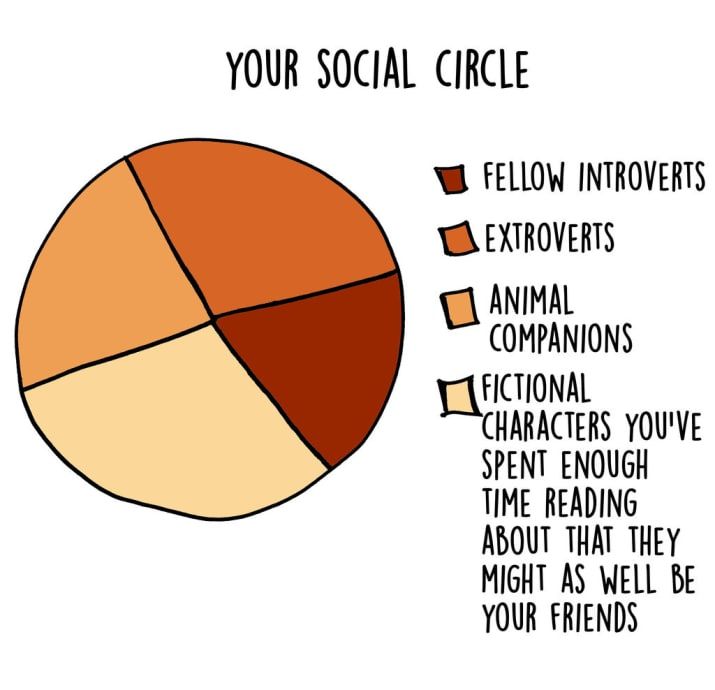 A feeling of envy can then arise from this which mistakenly makes you associate your introversion with social ineptitude.
A feeling of envy can then arise from this which mistakenly makes you associate your introversion with social ineptitude.
This reason is understandable, but as we’ve discussed earlier, this is something you need to acknowledge as untrue.
You want to hang out more than you can
You want to hang out more than you can, but you ultimately cannot. Your social battery is short, therefore you tire very easily and very fast whenever you’re out and about. You go home and end up hating yourself and the fact that you’re an introvert because you wanted to stay longer, but you physically and mentally can’t anymore.
This is an unfortunate truth for introverts, but there’s also something you can do about it, which we’ll discuss in detail later on.
It’s dampened your social life
There are people around you who have good social lives and you don’t. Others have friends you wish you had but you can’t. You then blame this on your introversion, but in reality, it can be attributed to other things.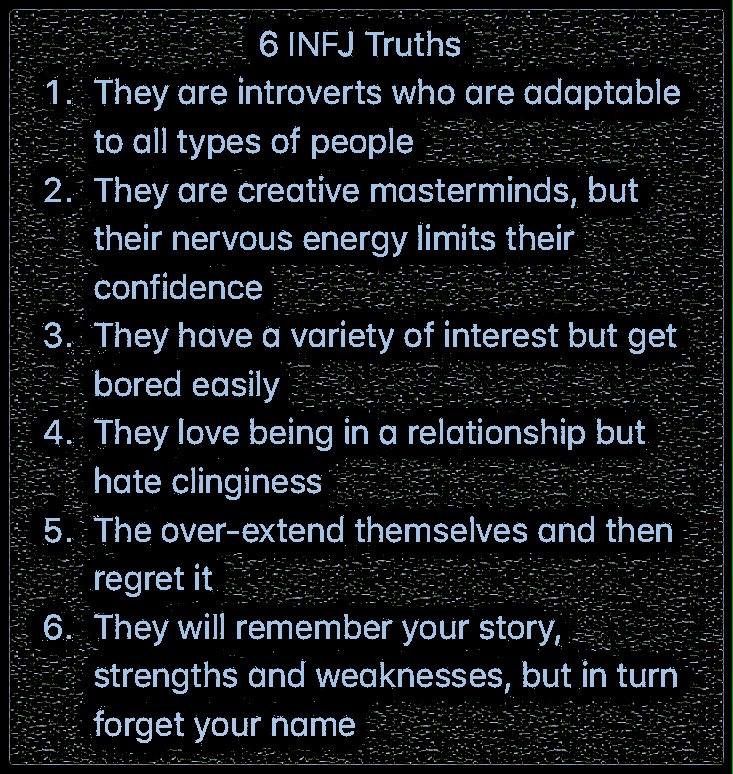
You believe socializing is an extrovert’s game
Since most of the people around you who have good social lives are extroverts, you start believing that socializing is an extrovert’s game. It isn’t. That’s an important fact you need to keep in mind for now. Socializing isn’t exclusive to extroverts, and you’ll learn exactly how to play this game as you read along with this article and as you scour the other articles on this site.
You’ve been criticized for it
At one point in your life, you may have gotten called out for your introversion. You keep getting asked out and you keep saying no or you always go home too early, and eventually, you got criticized and called out for it.
There are two things that can come into play here. One, misunderstanding, and two, simple ignorance. You may not have let others know of your introversion or perhaps those around you just don’t understand what an introvert is. This is something you can thankfully fix, which you should if you hate being an introvert.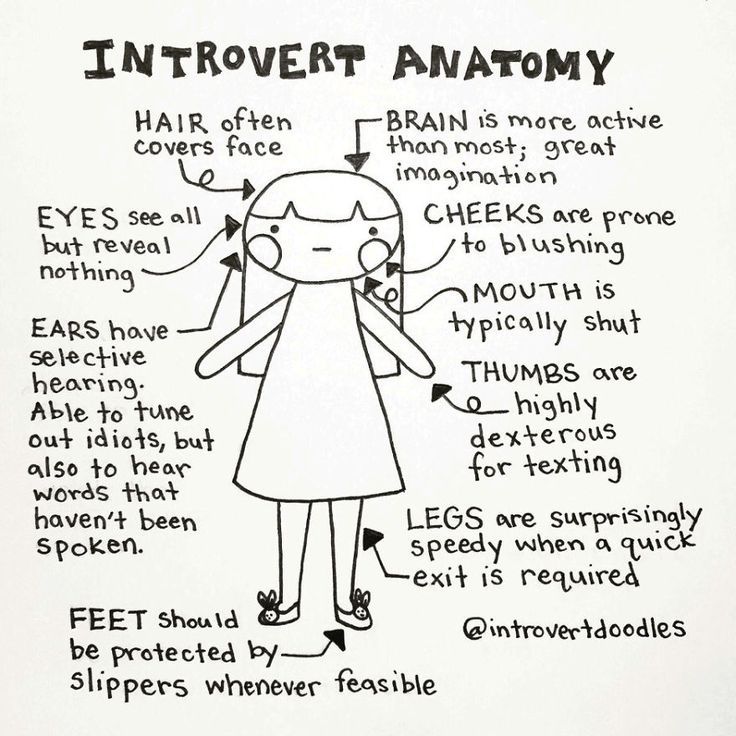
What To Do If You Hate Being An Introvert
Hating your introversion is an unhealthy mindset you should get rid of immediately. Not only is this further harming your social life, but it is also very damaging to your mental health. Stop associating your introversion with social ineptitude and stop blaming it for your lack of social connections. That said, here’s what you need to do if you hate being an introvert.
Understand what being an introvert means
We’ve already discussed at the beginning of this article what it truly means to be an introvert. Now, read that part once again. Fully understand and internalize what it means to be an introvert. Stop associating it with things it has nothing to do with and start seeing it for what it truly is.
This is the very first step you need to acknowledge. If you understand what it means to be an introvert, you’ll find it easier to stop hating and start embracing your introversion. Stop blaming it for the things that have gone wrong in the past.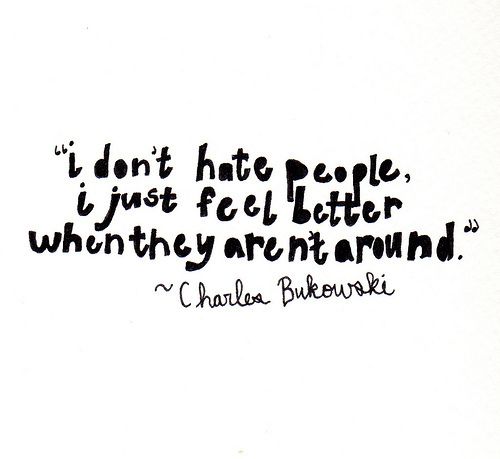 If you’re able to get past this first step, the next steps will be much easier for you.
If you’re able to get past this first step, the next steps will be much easier for you.
Socialize the way that is meant for you
Now that you understand what it means to be an introvert, now it’s time for you to cater your socializing approach to your personality. Socialize the way socially adept introverts socialize and you’ll be able to make friends wherever you go.
As mentioned, introverts generally have smaller social batteries compared to extroverts. With that in mind, don’t push yourself if your limit is at its breaking point. Know when to stop and when to recharge your social batteries.
There’s no need for you to socialize like an extrovert. You don’t have to stay at a party all night just because they are doing the same. Adhere to your limits but make the best out of the time you have.
Acknowledge the friends you already have
Start acknowledging the friends you already have now by spending more time with them. While you were hating your introversion prior to all this, they accepted you for you who are.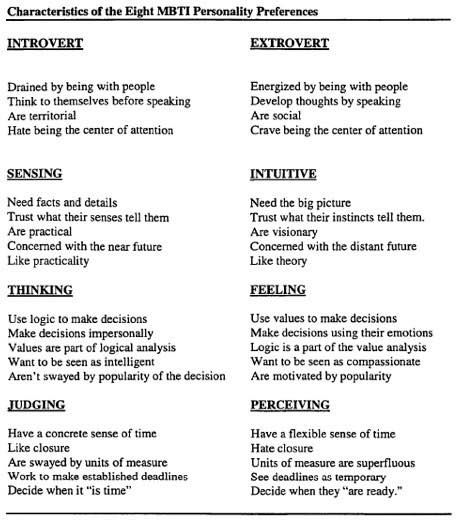 Appreciate them for that. Let them know that you appreciate them for that. Something as simple as asking them out or having them over should be more than sufficient.
Appreciate them for that. Let them know that you appreciate them for that. Something as simple as asking them out or having them over should be more than sufficient.
This will also help you appreciate your introversion more. The fact that you have the friends you have is proof that you don’t need to be an extrovert to make friends. You literally have walking and talking evidence of your capability to make friends. Make sure you let them know you appreciate them for it.
Never try to be extroverted
Your job here is to stop hating being an introvert, not to become an extrovert. In fact, that shouldn’t even be considered. You don’t need to “pretend” to be extroverted if you hate being an introvert. If your ultimate goal here is to be more socially adept, then focus on improving your social skills as an introvert instead of being more extroverted.
Get this thought out of your head and start another journey of acceptance. There’s beauty in being an introvert, which you’ll come to know and love later on.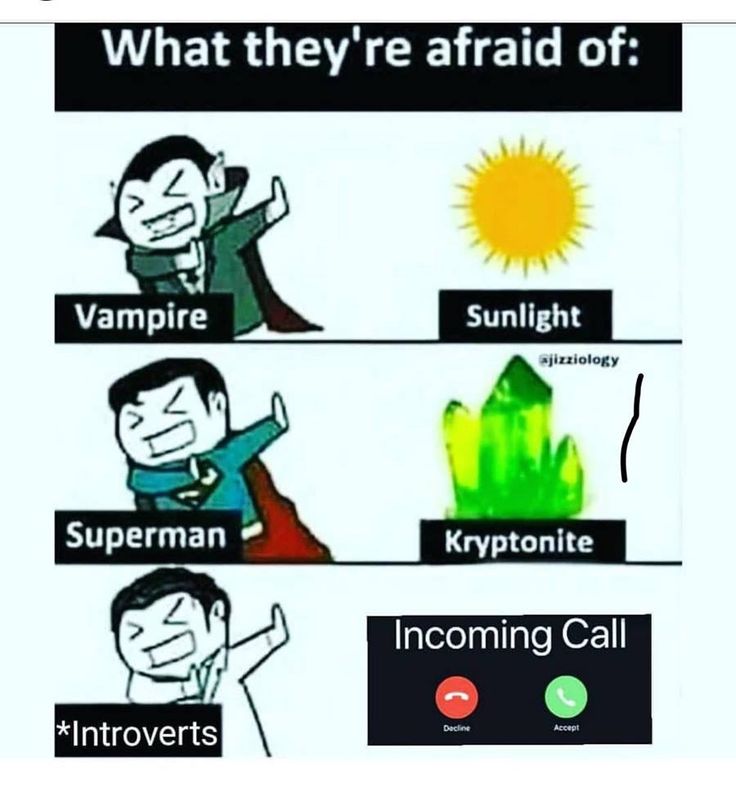
Talk to other introverts
It will serve you greatly to start getting to know other introverts. Even better, start getting to know introverts who are socially adept. Observe how they act in a social setting and emulate it.
Perhaps some of the friends you have now are introverts, you just haven’t noticed it yet. There’s no harm in asking them about it. Most of the time, a person will not hesitate to divulge whether they’re an introvert or an extrovert. In fact, a lot of people don’t know which spectrum they stand on.
For now, though, just get to know other introverts and start observing them. Slowly but surely, you’ll start to see the many beauties and advantages that come with introversion. Realize that you can experience those things as well.
Talk to extroverts
You will also need to start talking to extroverts if you want to stop hating being an introvert. Perhaps you’ve had this mental picture and assumptions of what extroverts are like when they’re actually different in reality.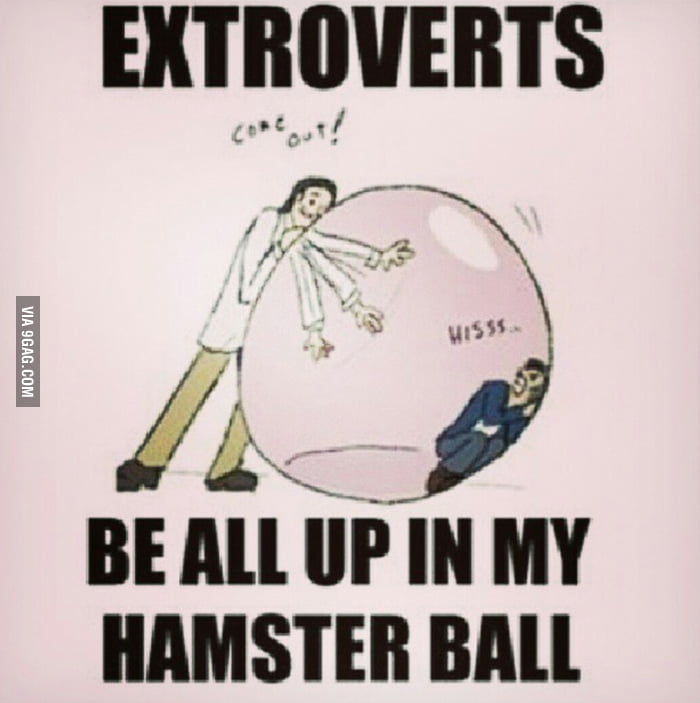
Take the opportunity to get to know an extrovert for yourself, not to emulate them but to understand them. Understand them to know the true differences between an introvert and an extrovert. Ask them for their perspectives, how they socialize, how they feel, and the like. Once you understand both extroverts and introverts fully, you’ll start to accept that you don’t need to be like someone who’s on the other end of the personality spectrum to be friends with them.
Practice self-love
This isn’t just talking about your introversion. Remember, your introversion doesn’t define you. It’s just one piece of the puzzle that is your entirety. Love everything about yourself. Practice self-love by taking care of yourself, paying attention to your wants and needs, doing the things you want to do, and working on your goals.
If you’re able to fully love yourself and work on becoming a better version of yourself every single day, then the idea of hating on your introversion will easily be eliminated from the picture.
Welcome questions about your introversion
If you hate being an introvert, the most sensible approach to deal with it is to accept it. One very helpful way of doing that is to acknowledge your introversion. You shouldn’t just do this internally, but externally as well. If you happen to receive questions about your introversion, don’t brush those questions off. Welcome them and answer them.
Be open with your introversion and your acceptance of it will become easier and simpler. Talking about it out loud will also make the idea of you dealing with your introversion more concrete.
Know your advantages
Being an introvert has a lot of advantages and, if you’re to stop hating being an introvert, you need to know these fully.
For one, you feel completely safe and secure with being alone. Not a lot of people find solitude with solidarity. A lot of people rely on others in order to be satisfied and happy. While no man is an island in the long run, at least you, as an introvert, are able to find comfort in your moments of being alone.
You also learn when to stop socializing as an introvert to take a step back to recharge. During these moments, you’re able to fully internalize your moments of interactions. You’re able to think about the people you met, which ones of them have clicked with you, and which ones are best suited to be your friends.
As I said, there are so many beautiful aspects that come with being an introvert, and these can even be unique to each individual. Find something about your introversion aside from what I mentioned here that you can see as advantageous. Embrace them. Not everyone has those advantages.
Improve your social skills
If you currently hate being an introvert and want to stop it right now, start focusing on building up your social skills. A lot of introverts become socially inept because they don’t bother learning how to improve their social skills. A lot of them also believe socializing is not for them, which is far from the truth.
You’ll finally completely stop hating being an introvert the moment you become socially adept as an introvert.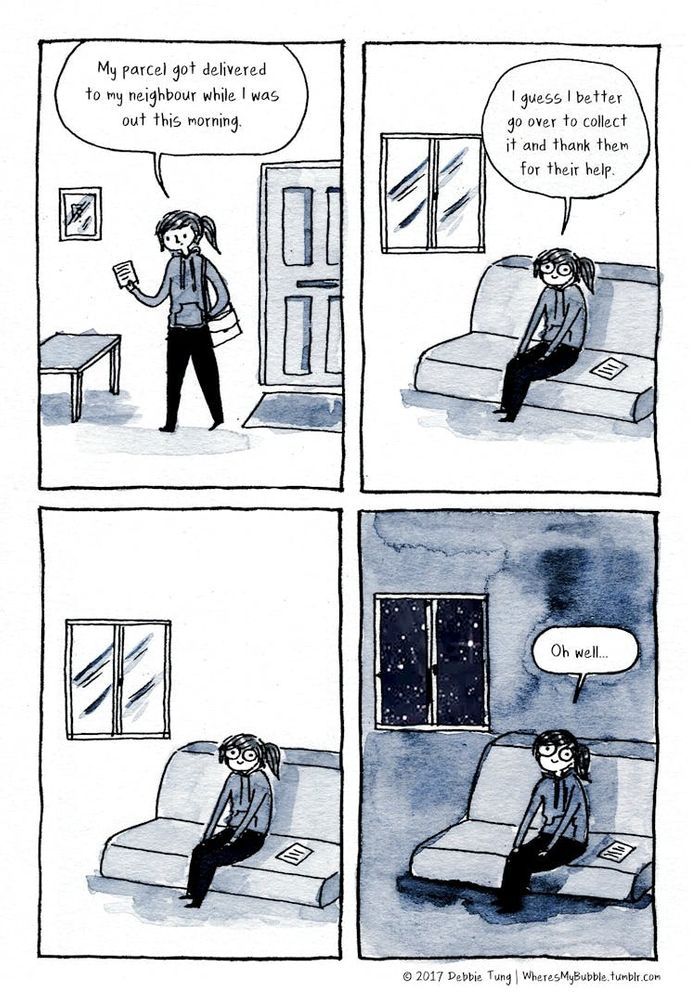 Fortunately, you’ll have a lot of study materials for that on this site. After you’re done with this article, be sure to check out the other articles on this site as well. There are a ton of articles here that will help you develop communication skills and deal with various social-related anxieties and loneliness.
Fortunately, you’ll have a lot of study materials for that on this site. After you’re done with this article, be sure to check out the other articles on this site as well. There are a ton of articles here that will help you develop communication skills and deal with various social-related anxieties and loneliness.
Accepting and Loving Your Introversion
Regardless of whether you’re an introvert, an extrovert, or an ambivert, your ability to make friends is ultimately up to you. It’s not about which personality spectrum you stand on, it’s about your willingness and determination to socialize. It’s about your acknowledgment of the importance of friendship.
Once you’re able to understand this, if you hate being an introvert now, it will easily and surely start to transform into acceptance. Just know that your introversion is a beautiful thing and that you should accept it. Socialize as an introvert. That’s not the one holding you back.
“I Hate Being An Introvert:” Reasons Why And What To Do
“I don’t want to be an introvert anymore.
It feels like people don’t understand me. How can I be happy and make friends in a society that seems to favor extroverts?”
Roughly 33-50% of the US population are introverts, meaning that introversion is a normal personality trait.[1]
But sometimes, being an introvert is hard. You might even have found yourself wishing for a more extroverted personality. Here are a few possible reasons why you dislike being an introvert and what you can do about it.
Sections
- Reasons for not wanting to be an introvert
- What to do if you hate being an introvert
- Common questions
Reasons for not wanting to be an introvert
1. You may be socially anxious, not introverted
Some people claim that they hate being introverts because they get anxious about social occasions and spend a lot of time worrying about what others will think of them. However, these feelings and concerns are not signs that someone is introverted.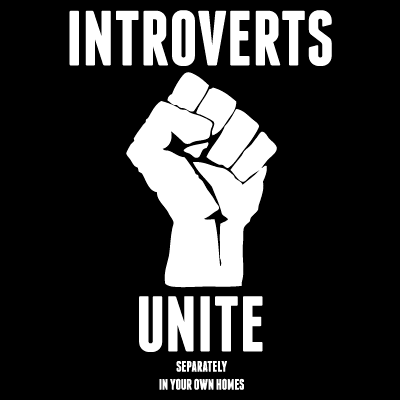 They are more likely to be a sign of social anxiety disorder or shyness.
They are more likely to be a sign of social anxiety disorder or shyness.
Advertisements
2. Introverts are often misunderstood
Some people may assume that you are aloof or feel superior to others because you are reserved or take your time before speaking, when in fact, you just prefer low-key social interaction. Or they might imply that you should change your personality, perhaps by “acting more outgoing” or “speaking up more.” You might also get asked, “Why are you so quiet?” or “Is something wrong?” which can be annoying.
You might like to see these introvert quotes to get more examples.
3. Introverts are easily overstimulated
Introverts recharge their energy by spending time alone.[1] As an introvert, you probably find social situations draining, even when you’re with close friends and relatives. Noisy, busy social events can be unpleasant for you.
4. Being introverted can pose problems at work
You may feel that being an introvert has cost you career opportunities.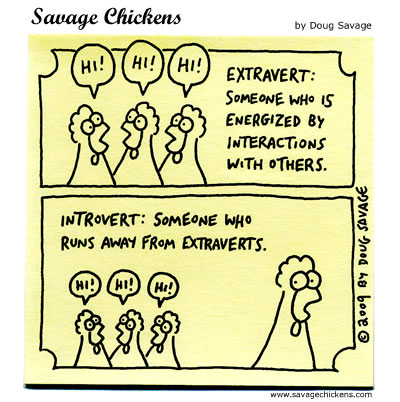 For example, if you hate networking events, conference calls, group projects, work parties, or other social activities in the workplace or at school, you might be labeled as “not a team player,” which can hurt your professional reputation.
For example, if you hate networking events, conference calls, group projects, work parties, or other social activities in the workplace or at school, you might be labeled as “not a team player,” which can hurt your professional reputation.
Advertisement
Traditional therapy - done online
Find a therapist from BetterHelp's network of therapists for your everyday therapy needs.
Take a quiz, get matched, and start getting support via phone or video sessions.
Their plans start at $64 per week. Use the button below to get 20% off your first month at BetterHelp + a $50 coupon valid for any SocialSelf course. To receive your $50 SocialSelf coupon, sign up for BetterHelp using the orange button. Email the order confirmation to SocialSelf to get your unique coupon code.
Start BetterHelp's quiz
5. Introverts would rather avoid small talk
Introverts typically dislike small talk, preferring to have more meaningful discussions.[2] If casual conversation bores you, it might feel like you have to pretend to be interested in others.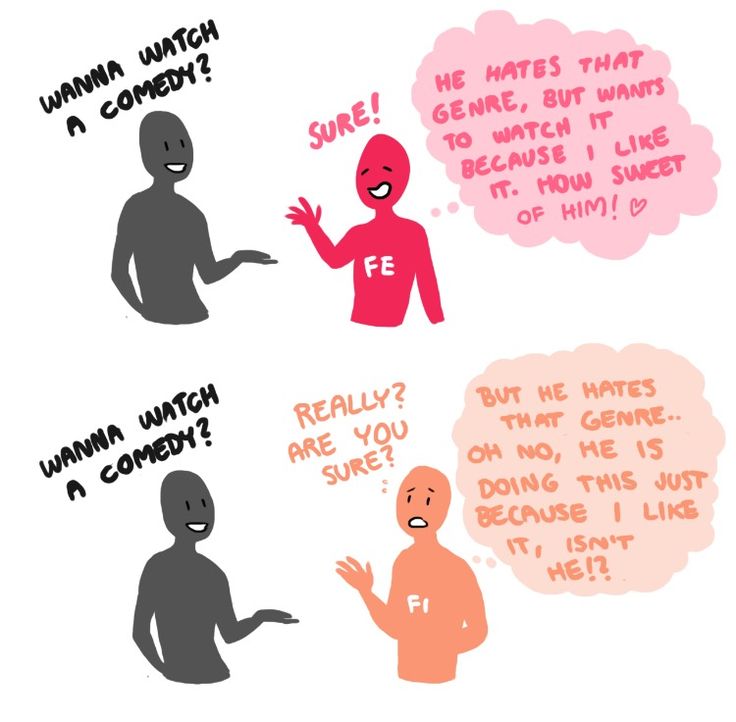 This can be tiring and frustrating; it might seem like you are just “going through the motions.”
This can be tiring and frustrating; it might seem like you are just “going through the motions.”
6. Western societies favor extroverts
Outgoing, extroverted personality traits are often held up as the ideal in the media.[1] As an introvert, this can be discouraging.
7. You may be criticized for being introverted
If your family, friends, or teachers criticized you for being “reserved” or “distant” as a child or teenager, you might have decided at an early age that being an introvert was bad.
A recommendation
If you want to improve your social skills, self-confidence, and ability to bond, take our 1-minute quiz.
You get 100% free personalized tips based on your results.
Start the quiz
8. Finding likeminded people can be a challenge
One of the most common myths about introverts is that they are antisocial or not interested in people. This isn’t true.[3] However, it can take a lot of time and effort to find suitable friends who understand your introverted nature, enjoy deep conversations, and share your interests.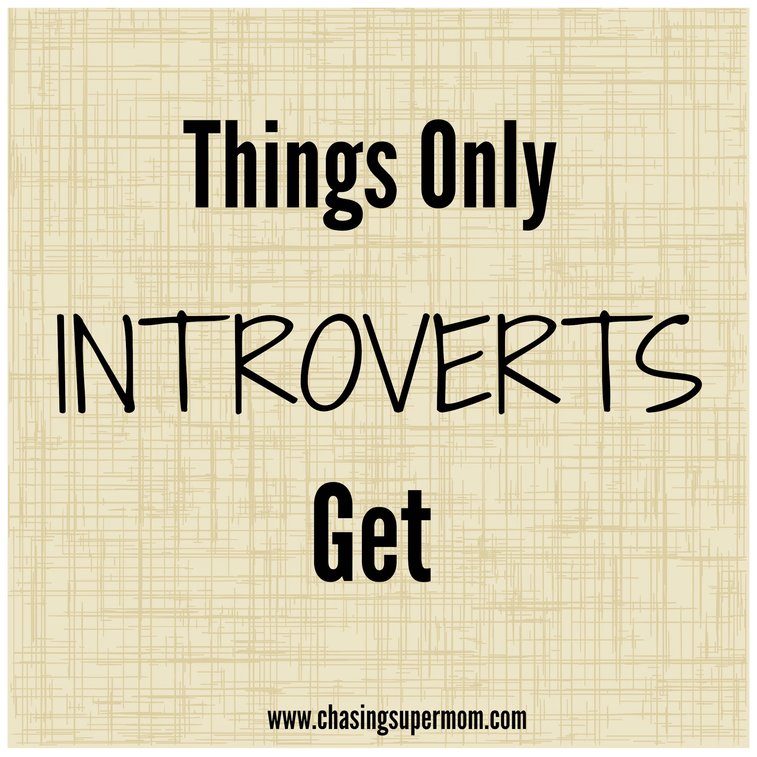
9. Overthinking is a common problem for introverts
As an introvert, you might spend a lot of time analyzing your own thoughts and ideas. This can be a strength—self-awareness is often useful—but it can become a problem if it makes you anxious.
Advertisements
What to do if you hate being an introvert
1. Seek out likeminded people
“I’m an introvert, but I hate being alone. How can I make friends with people who will accept me as I am?”
If you feel lonely, you might blame your introversion. But whatever your personality type, you can meet like-minded people and build a social circle. It may help to look for other people who enjoy typically introvert-friendly activities, such as reading, art, and writing. As an introvert, you’re unlikely to make friends by going to one-off events, bars, clubs, or parties.
It may be easier to make friends with people if you meet them at a group or class that centers on a common interest.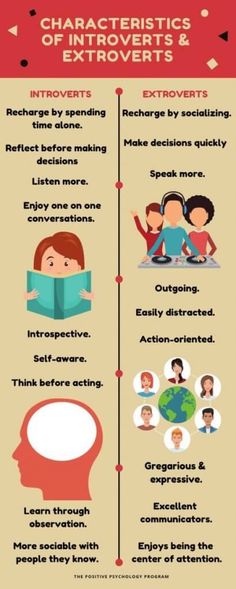 Try to find an ongoing meetup or class. That way, you’ll be able to build meaningful friendships over time. Look at this article on how to make friends as an introvert for more ideas.
Try to find an ongoing meetup or class. That way, you’ll be able to build meaningful friendships over time. Look at this article on how to make friends as an introvert for more ideas.
2. Make your needs and preferences clear
Some people don’t realize that activities which would suit extroverted personalities, such as large parties or a night out at a bar, are unlikely to be much fun for introverts.
But if you are proactive and voice your preferences, you can decide on an activity that works for everyone. This helps you build a more enjoyable social life, which in turn can make it easier to accept your introverted traits.
For example:
[When a friend invites you to a busy nightclub]: “Thank you for inviting me along, but noisy clubs aren’t my thing. Would you be interested in getting a coffee sometime next week?”
Advertisements
Sometimes, you might want to go to a high-energy event but need to leave early before you get overwhelmed or drained.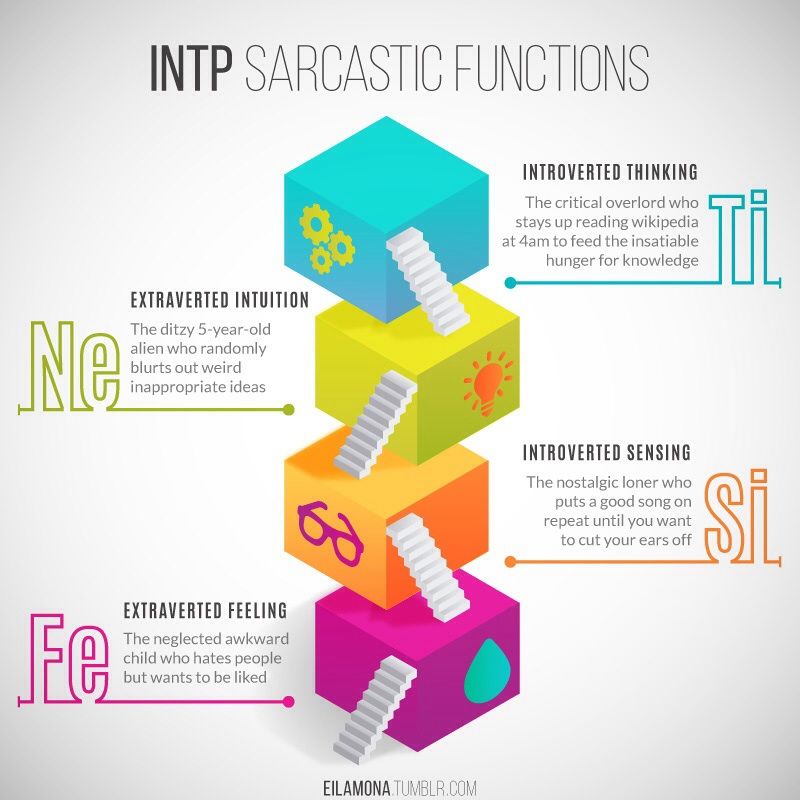 Be prepared to politely but firmly assert your boundaries when necessary.
Be prepared to politely but firmly assert your boundaries when necessary.
For example:
[When you want to leave a party, but someone tries to pressure you into staying]: “It’s been fun, but two hours is usually my limit for parties! Thank you for having me. I’ll text you soon.”
3. Prepare responses for “Why are you so quiet?”
Some people assume that introverts are quiet because they are worried, shy, or aloof. If you tend to be reserved around others, it can help to prepare in advance what you’ll say the next time someone asks you why you don’t say much.
Check out this article for ideas: “Why Are You So Quiet?”
4. Check if you have social anxiety
It can be difficult to know the difference between introversion and social anxiety. Introverts and socially anxious people can show similar behavior, such as a reluctance to socialize in groups.
As a general rule, if you are afraid of social situations or of being judged by others, you are probably socially anxious. Our article on how to know whether you’re an introvert or have social anxiety will help you tell the difference. If you have social anxiety, these guides may help:
Our article on how to know whether you’re an introvert or have social anxiety will help you tell the difference. If you have social anxiety, these guides may help:
Article continues below.
Take this quiz and see how you can improve your social life
Take this quiz and get a custom report based on your unique personality and goals. Start improving your confidence, your conversation skills, or your ability to bond - in less than an hour.
Start the quiz.
- What to do if social anxiety is ruining your life
- How to make friends when you have social anxiety
5. Practice your small talk skills
Try to change the way you think about casual conversation. Rather than seeing it as a burden, try to think of it as the first step in forming a deep connection with someone who could turn into a good friend.
Check out this list of small talk tips for advice and tips on how to master small talk. You might also find our guide to how to make conversation as an introvert useful.
Advertisement
6. Experiment with acting more extroverted
There is nothing wrong with being an introvert, but there may be times where you’d like to be more outgoing. For example, when you are meeting new people or when you’re at a large, high-energy social gathering, you might prefer to act more extroverted.
Research shows that it’s possible to develop your extroverted side if you’re willing to make changes.[4] As human beings, we have the ability to adapt to our surroundings, and this often becomes easier with practice.
For step-by-step advice on how to act in a more extroverted way, check out our articles on how to be more outgoing and tips on how to be more extroverted without losing who you are.
7. Stop overthinking social situations
Some introverts have a tendency to over-analyze social situations, which can cause a lot of unnecessary worry. We go into this problem in depth in our article on how to stop overthinking social interaction for introverts.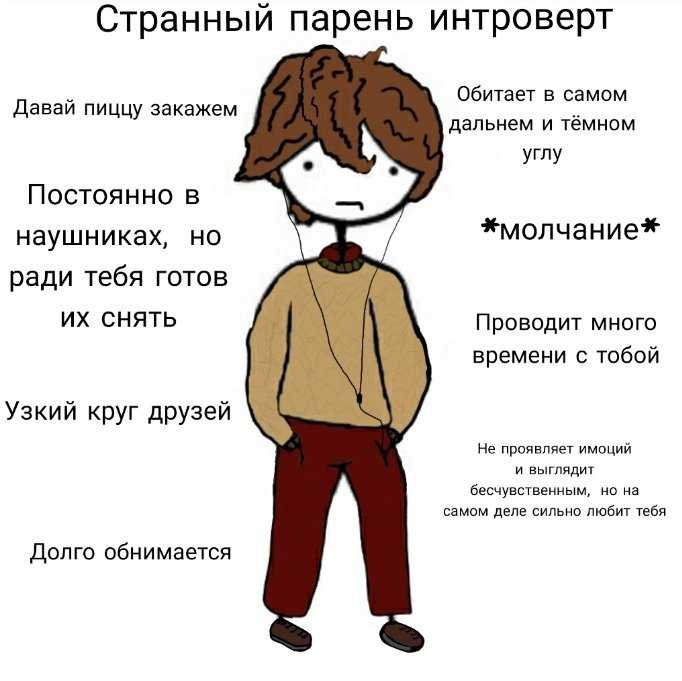
Here are a few strategies to try:
- Deliberately make a few minor social mistakes, such as mispronouncing a word or dropping something. You’ll soon learn that most people aren’t very interested in you and won’t care about your mistakes, which can help you feel less self-conscious.
- Try not to take other peoples’ behavior personally. For example, if your colleague is abrupt towards you one morning, don’t leap to the conclusion that they dislike you. They might just have a headache or be preoccupied with a work problem.
- Try an improv class or another activity that forces you to socialize without thinking too much about what you’re doing or saying.
8. Evaluate your work situation
You may be more accepting of yourself as an introvert if your job is a good fit for your personality.
Article continues below.
What type of social overthinker are you?
Take this quiz and get a custom report based on your unique personality and goals.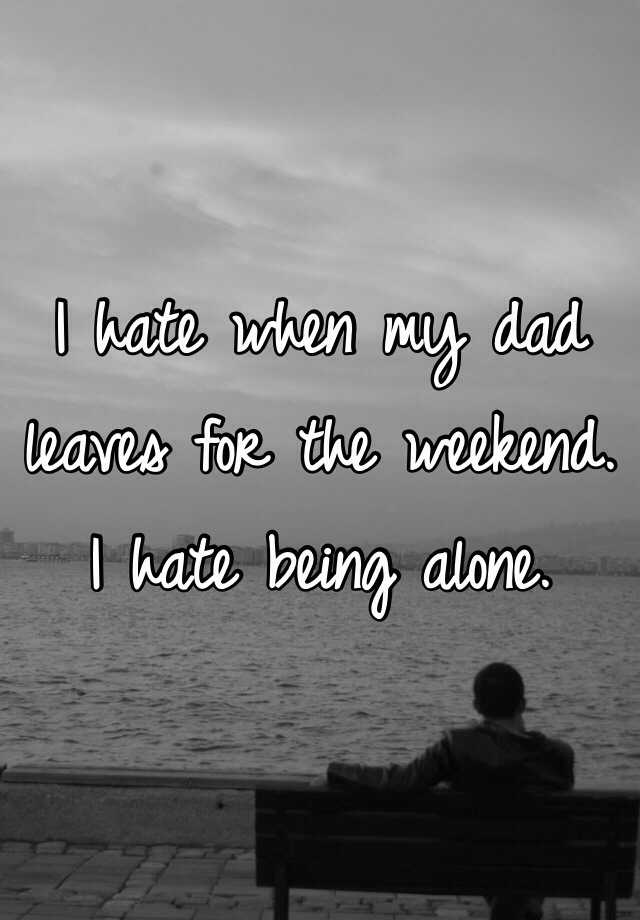 Start improving your confidence, your conversation skills, or your ability to bond - in less than an hour.
Start improving your confidence, your conversation skills, or your ability to bond - in less than an hour.
Start the quiz.
Introversion can be an asset in the workplace. For example, introverts may be better at avoiding unnecessary risks and less likely to be overconfident compared to extroverts.[1]
But some jobs and work environments are more introvert-friendly than others. For example, you may find it hard to cope with working in a busy, open-plan office or feel drained if your work involves making multiple phone calls every day.
If you are unhappy in your career, it might be time to find a new role.
As an introvert, one of the following jobs could be a great fit:
- Creative freelancer, e.g., graphic designer, writer, or a social media consultant
- Jobs that involve working with animals rather than people, e.g., dog walker or groomer
- Jobs that involve working with the environment or spending time alone outdoors alone or with only a few other people, e.
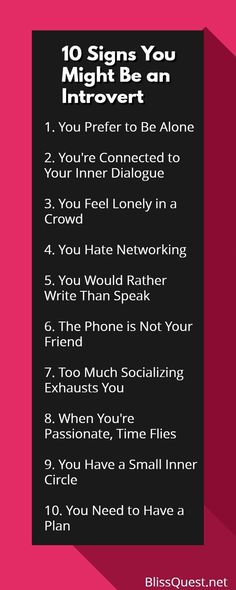 g., wildlife ranger, gardener, or tree surgeon
g., wildlife ranger, gardener, or tree surgeon - Roles that let you work alone or as part of a small team in a quiet environment, e.g., accountant, programmer
Starting your own business could be another option to consider. As an entrepreneur rather than an employee, you’ll have more control over how much time you have to spend with other people.
Adapt to your current workplace
If you can’t or don’t want to change your job, you might be able to adjust your work environment or routine to suit you.
Advertisements
For example, depending on your job, you could:
- Ask your manager if it’s OK to use noise-canceling headphones if you work in a noisy environment.
- Ask to work from home part of the time.
- Encourage others to communicate with you in writing (i.e., via email and instant messaging) rather than in person if appropriate. Many introverts like expressing themselves in writing.[1]
- Ask for regular performance reviews.
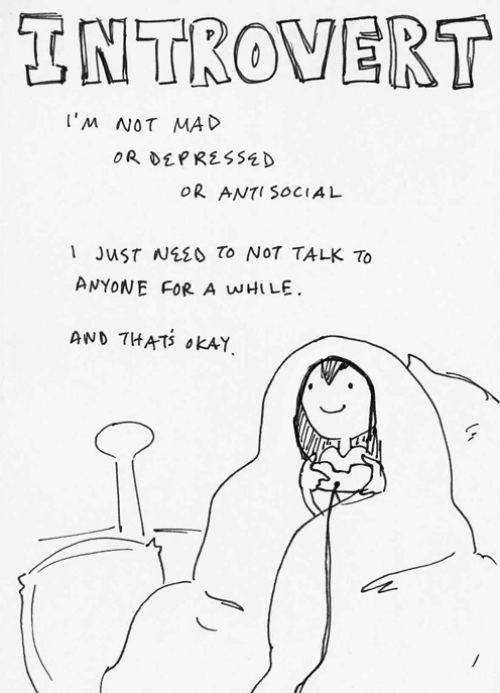 Introverts can be reserved when it comes to pointing out their contributions at work, which can mean they are passed over for promotion. It can feel easier to lay out your achievements as part of a formal review process.
Introverts can be reserved when it comes to pointing out their contributions at work, which can mean they are passed over for promotion. It can feel easier to lay out your achievements as part of a formal review process.
Learning a few introvert-friendly networking strategies could also pay off. This Harvard Business Review article has some useful tips.
9. Appreciate the advantages of being an introvert
There are benefits to being an introvert. For example, if you prefer to socialize only occasionally, you might have plenty of time to focus on your hobbies and teach yourself new skills. Reading some books for introverts can help you appreciate your strengths.
Advertisement
Consider online therapy
Online therapy allows you to speak to a licensed therapist in the comfort of your home.
BetterHelp offers support via phone or video at $64 per week.
Use the link below to get 20% off your first month at BetterHelp + a $50 coupon valid for any SocialSelf course.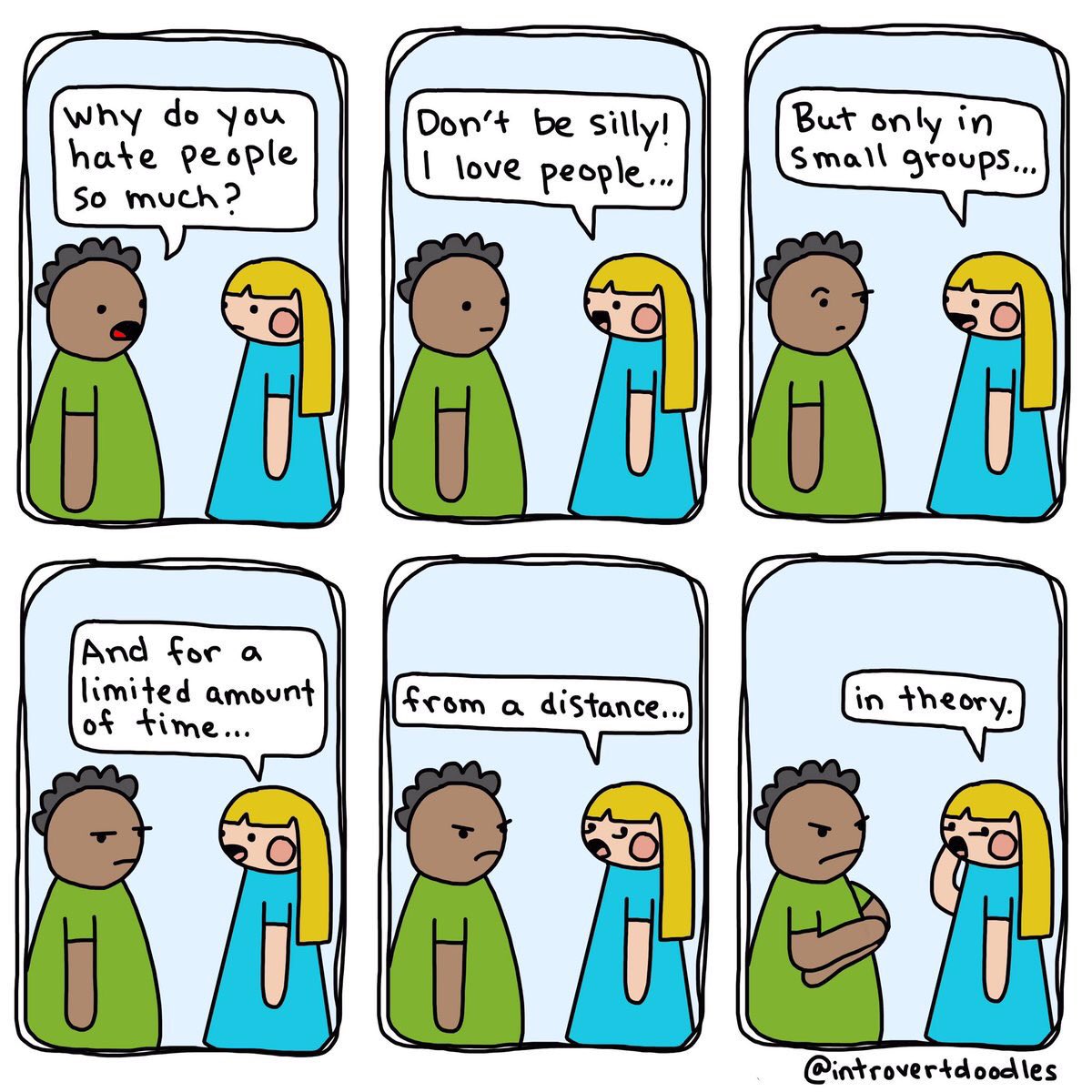 To receive your $50 SocialSelf coupon, sign up for BetterHelp using the link below. Email the order confirmation to SocialSelf to get your unique coupon code.
To receive your $50 SocialSelf coupon, sign up for BetterHelp using the link below. Email the order confirmation to SocialSelf to get your unique coupon code.
Click here to learn more
Common questions
Why am I an introvert?
There are biological differences between introverts and extroverts, and these affect behavior from a young age.[5] Introverts’ brains are more easily stimulated by the environment, which means they get overwhelmed more quickly than introverts.
Is there anything wrong with being an introvert?
No. Introversion is a normal personality trait. Being an introvert can be difficult sometimes—for example, you may find other people draining—but you can learn techniques to help you enjoy a healthy social life.
Is being an introvert bad?
No. Western societies are generally biased towards extroverts,[1] but this doesn’t mean that being an introvert is bad. However, you can learn to act more extroverted if you’d like to be more outgoing in social situations.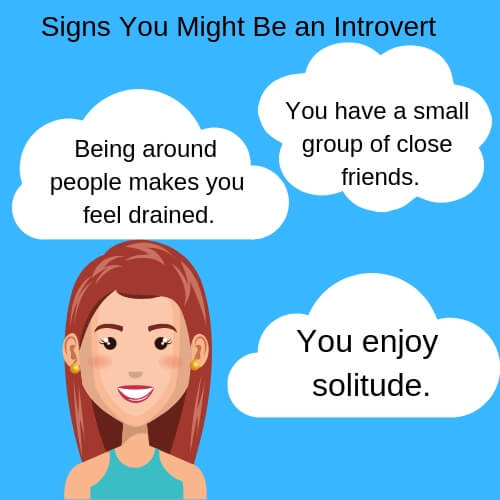
Show references +
References
- Cain, S. (2013). Quiet: The Power of Introverts in a World That Can’t Stop Talking. Penguin Books.
- Marti Olsen Laney. (2002). The Introvert Advantage: How to Thrive in an Extrovert World. Workman Pub.
- Cherry, K. (2020). 11 Things You Introverts Want You to Know. Verywell Mind.
- Hudson, N. W., & Fraley, R. C. (2015). Volitional personality trait change: Can people choose to change their personality traits? Journal of Personality and Social Psychology, 109(3), 490–507.
- WebMD. (2020). How to Tell if You’re an Introvert. WebMD.
Free training: Conversation skills for overthinkers
- Use "conversational threading" to avoid awkward silence
- Learn a proven technique to get past empty small talk
- Improve socially without doing weird out-of-your-comfort-zone stunts.
- Instantly beat self-consciousness with the "OFC-method"
- See how you can go "from boring to bonding" in less than 7 words.
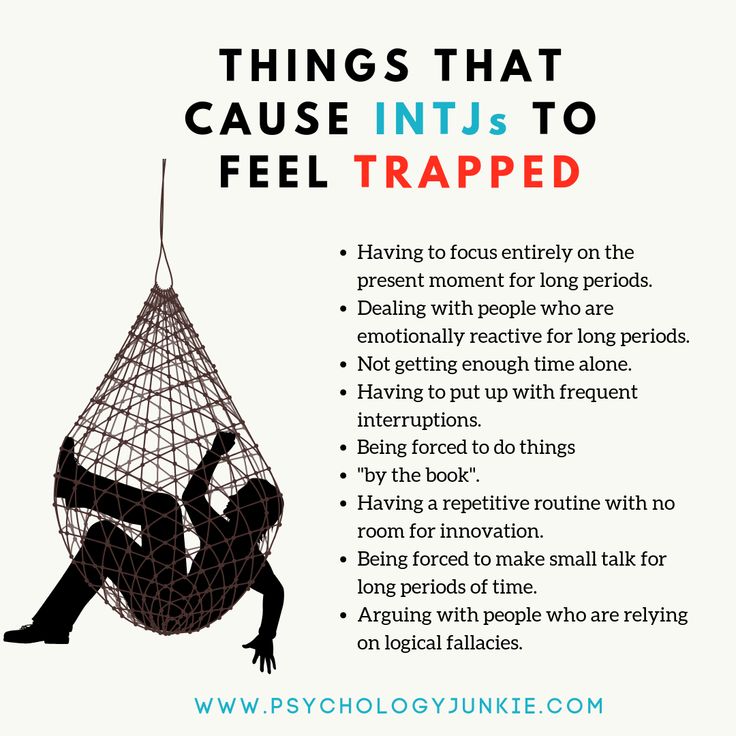
Start my free training
Why do extroverts dislike introverts?
Why extroverts don't... Relcome
#1
#2



